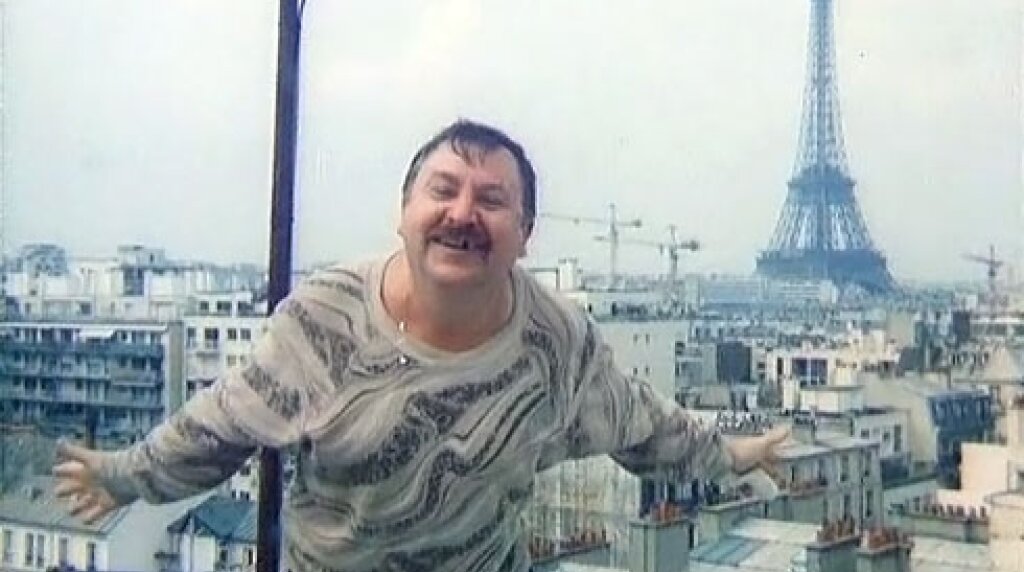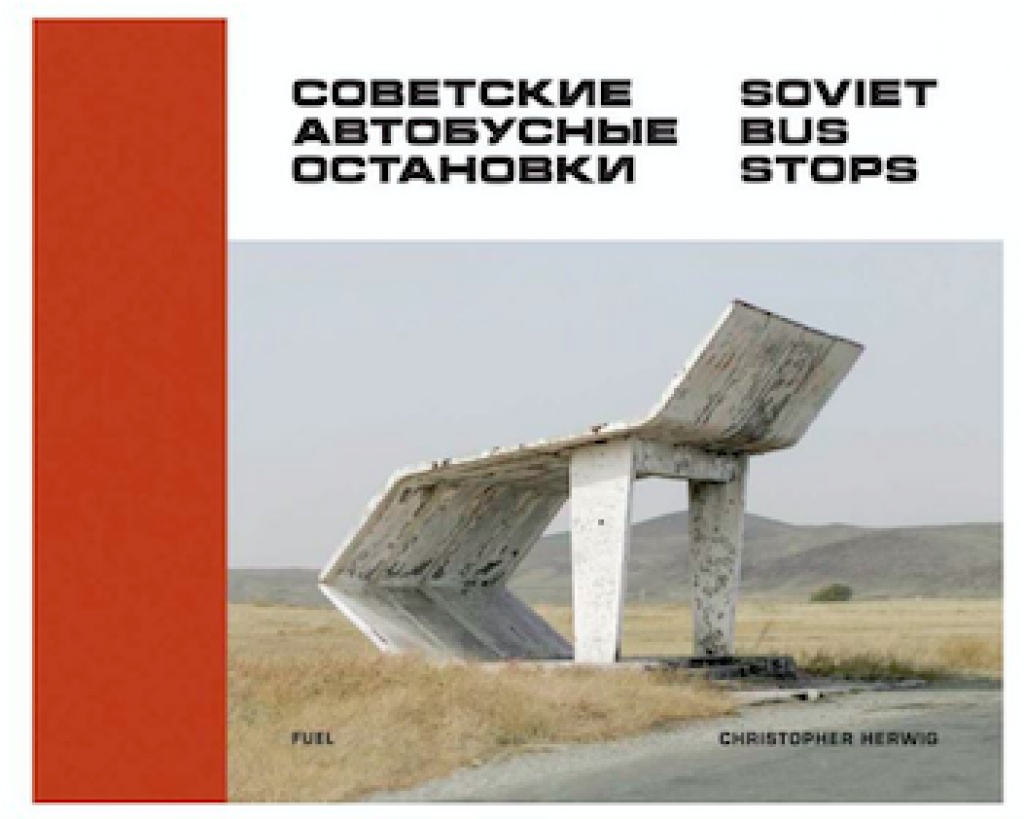This is the twenty-eighth entry of Russia’s Alien Nations: The Secret Identities of Post-Socialism, an ongoing feature on All the Russias, as well as the fifteenth entry of Chapter 1. It can also be found at russiasaliennations.org. You can also find all the previous entries here.
The most expansive artistic vision of sovok would appear one year before the MMM commercials: Yuri Mamin’s 1993 comedy Window to Paris (Okno v Parizh). A joint Russian-French production (called Salades russes in France), Window to Paris retains some of the sympathy for its subjects shown by Riazanov in The Promised Heavens, but with a much stronger satirical bent. And, like The Promised Heavens, its subjects (nearly all sovki) ranged from crass proletarian slobs to refined otherworldly intellectuals, all while Mamin avails himself of what was already becoming a classic trope, the sovok abroad.
The hero of the film is Nikolai Chizhov, a teacher in a school that has transformed itself into a lycée, is a quirky, charismatic music instructor who wants to bring art and joy to the lives of his young charges (whom school officials seem determined to transform into the business leaders of the future). Wild-eyed and wilder-haired, Chizhov is played by Sergei Dontsov, who, under his birth name Sergei Dreiden, is best known to Western audiences as the Marquis de Custine in Alexander Sokurov’s 2003 Russian Ark. There is an appealing symmetry to Dontsov/Dreiden’s star turns in these two films, produced ten years apart. The title of Mamin’s movie is an obvious reference to Pushkin’s The Bronze Horseman, which describes the creation of St. Petersburg as the fulfillment of Peter the Great’s desire to open a “window to Europe,” while Sokurov’s title suggests a Russia that must close itself off to weather a global catastrophe.
In Window to Paris, Dontsov gives us an intelligent, kind-hearted sovok who can embrace the beauty of the unfamiliar (Paris) while rejecting any suggestion that he abandon his Russian home. Window to Paris ends on a strong note of love for Russia, but it is a clear-eyed love that sees both charm and blight at the same time. In Russian Ark, Dreiden’s Custine is a haughty, Russophobic Frenchman who can only see the beauty of the Hermitage’s Western treasures while rejecting the possibility that Russia has anything of its own to offer. Sokurov’s deployment of Custine is nakedly polemical; the love for Russia embodied in Russian Ark is defensive and reactionary. The best that the West has to offer is preserved in the “Russian ark” of the Hermitage Museum; it is the only “window to Europe” that Russia really needs.
The premise of Mamin’s film is the discovery of a window in a St. Petersburg communal apartment that allows people to travel back and forth to Paris instantaneously, at least until the window closes again for another decade. The movie’s own global distribution traveled a path that was equally magical, showing throughout Europe and the United States to positive reviews. And, like the window in the film, Mamin’s own window to international stardom was closed off abruptly. There had been talk of putting Window to Paris forward as the Russian Federation’s nominee for the Best Foreign Film in the Academy Awards, but all such hopes were scuttled by the intense campaign of a much more powerful opponent: Nikita Mikhalkov. The chair of the nomination committee stepped down in frustration, to be replaced by …Andrei Konchalovsky. Konchalovsky, also known as Mikhalkov-Konchalovsky, is, in addition to being a renowned filmmaker in his own right, Nikita Mikhalkov’s brother. Burnt by the Sun was selected as Russia’s Oscar entry, whereupon the film did end up winning the award.
The irony of Mikhalkov’s defeat of Mamin and subsequent Oscar starts with politics, since the nationalist, anti-Western Mikhalkov edged out a liberal director for an American award. But it does not end there. As we saw in the introduction, Mikhalkov became obsessed with winning best picture, producing a mostly English-Language, aggressively nationalist melodrama that barely made a ripple abroad. He also made a sequel to Burnt by the Sun, a box office flop in Russia and an utter non-event in Europe and America. Mamin, who articulated a premise in Window to Paris that naturally left the door (or window) open for a sequel ten or twenty years later, was reduced to unsuccessful attempts at crowdfunding a follow-up in 2014.
Mikhalkov’s combined obsessions with Russian nationalist content and Western validation make him a fine example of a certain type of sovok, bringing together the tacky aesthetics of excess and stereotype with the privileges of post-Soviet wealth. By contrast, Mamin, at least when it comes to Window to Paris, looks like his own sovok hero: underpaid, with few possibilities to take advantage of the new economic and culture nexus around him, he is obliged to try to crowdfund his sequel, like Chizhov and his students performing on the streets of Paris in the hopes of donations. Sadly, Mamin was less successful at this sort of fundraising than his characters were.
Next: We Won’t Always Have Paris



